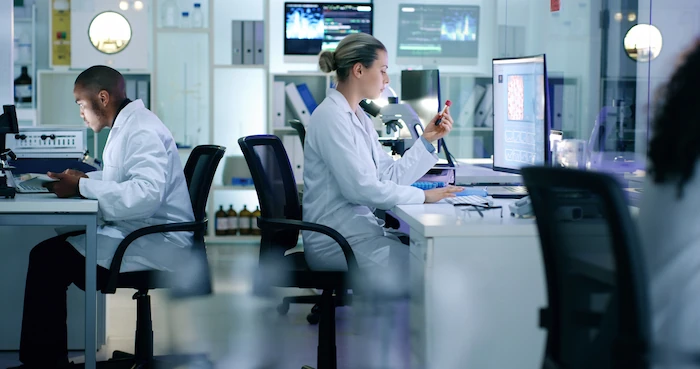Medical device testing has become important in the rapidly growing healthcare industry. A number of instruments like needles, forceps, scalpels, bone implants, tubular stents for heart blockages, as well as catheters and batteries comprise medical devices. All these are varied in structure and material and so medical device testing covers chemical, mechanical, and physical analyses.
Need for medical device testing
Medical devices are of various types and made from diverse materials. Sometimes untried materials in implants can have a negative impact on human health. It is therefore extremely important to fully analyse all materials and have them undergo testing for impurities, degradation and toxins if required to see if they comply with IEC 60601 series of standards. Contract testing laboratories specialise in testing materials like polymers, plastics, rubber, resins, extendable polymers, nylons and even some natural products. Depending on the use, medical device materials may require thorough analysis including extractable and leachable studies or biocompatibility testing before these devices are used in humans. This process in not always quick.
Role of contract testing labs
Contract testing laboratories that carry out medical device testing need to have advanced instrumentation to undertake varied testing requirements. Besides material testing contract testing laboratories need to analyse whether the right kinds of alloys, ceramics and metals have been used and if the coatings on devices are of the right specifications, including thickness and materials used. Testing medical devices includes checking for contaminants and surface treatment. Since there is a huge diversity in medical device products so it is only specialised and recognised contract testing laboratories with skilled technicians and expertise that can undertake medical device testing.
Read Also: Preventing Heart Disease: Expert Tips From Heart Care Specialists
Medical device analysis
Contract testing laboratories also extend their services to include analysis and consultation. They evaluate medical device samples and analyse the problem before offering assistance in resolving the issue. Experienced contract testing labs use a number of analytical techniques to help resolve the medical device challenges. They provide analytical support for quality control of devices and also prepare an analytical method development and validation. In this way they can get to the root cause of the problem and develop solutions without much delay. If the need arises they will also offer to undertake an on-site analysis to the medical device manufacturing unit as an additional service. Additional questions are created by devices and technologies built based on registered patents.
Types of medical device analysis
Broadly speaking contract testing laboratories offer medical device testing services in various categories that include but are not limited to the following
- Materials Characterization
- Contaminant Identification
- Product Comparisons
- Analytical Services
- Failure Analysis
- Surface Analysis
- Residue Analysis
- Testing of Implants and Stents
- Surface Coatings
- Glass Vials and Containers
- Medical device Packaging
Materials and surface analysis includes metal oxide characterization of implants and surface chemistry for devices like lenses, to assure purity of medical devices.
Chemical characterization of materials is carried out according to regulatory requirements and approval process. It includes testing for safety by means of qualitative and quantitative information. They also carry out raw material and component testing and drug-device compatibility testing. Failure analysis is required to reverse adhesion and bonding issues, corrosion, oxidation and embrittlement issues in medical devices.







